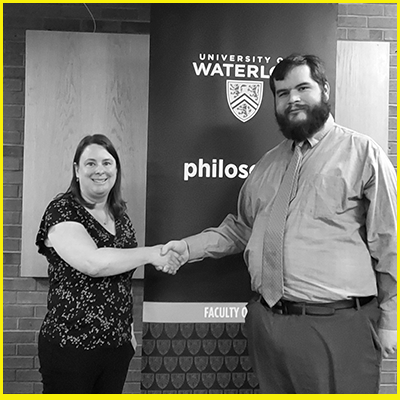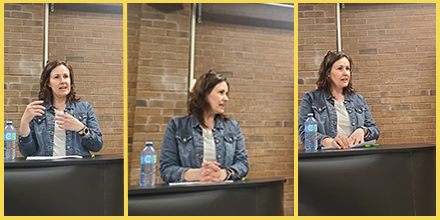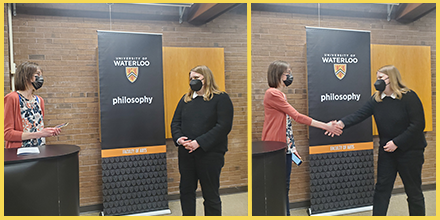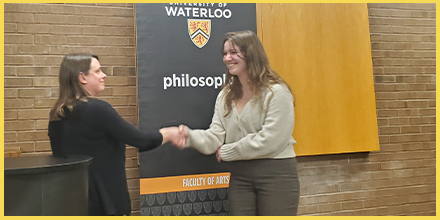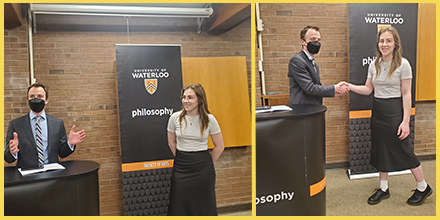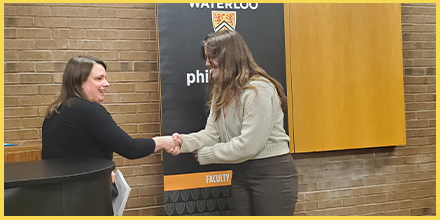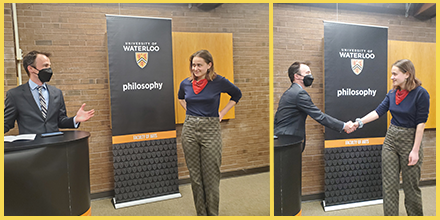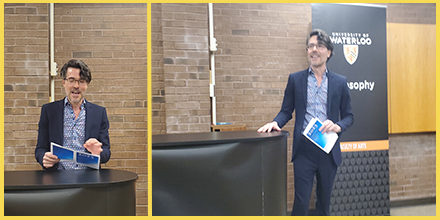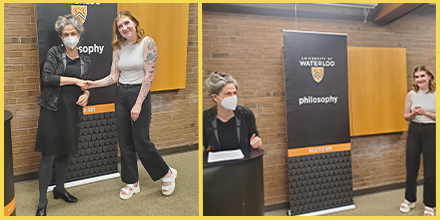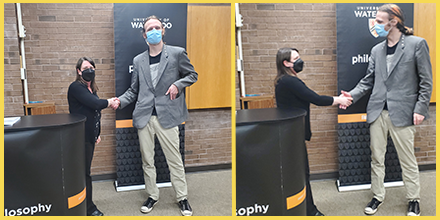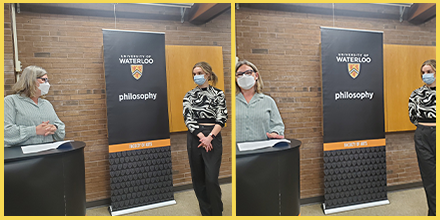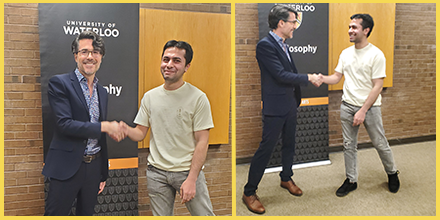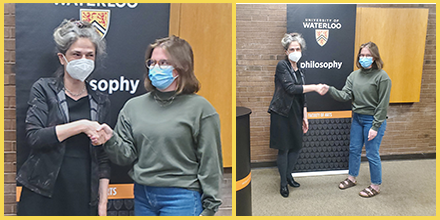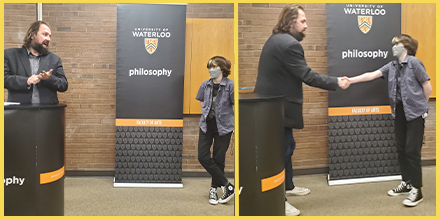
These awards are made possible by generous donors. We are deeply appreciative of their support. In particular, Bob Ewen. Ewen was a valued Philosophy alumnus and a friend of the department, up until his recent passing. He donated toward making the class prizes and essay prizes possible, and gifted to our Department an endowed fund that will support these awards for years to come. Ewen will always be recognized for his role as a major supporter of the Philosophy department's undergraduate awards program, and for his generosity in consulting with the Department on strategic development goals.
Awards Ceremony 2025
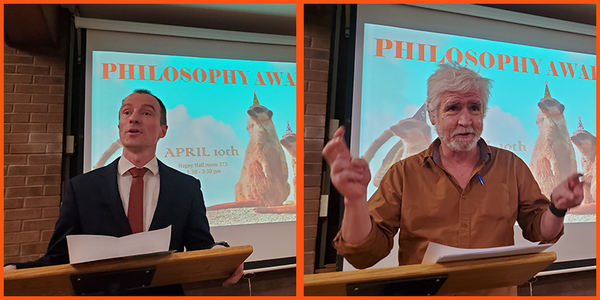
Welcome
Department chair, Mathieu Doucet (L), welcomes award winners and their guests and provides territorial acknowledgement. Gerry Callaghan (R), provides humorous reflections on philosophy as a discipline.

Class Prizes
First-year prize:
Ava Adamczyk – presented by Nick Ray
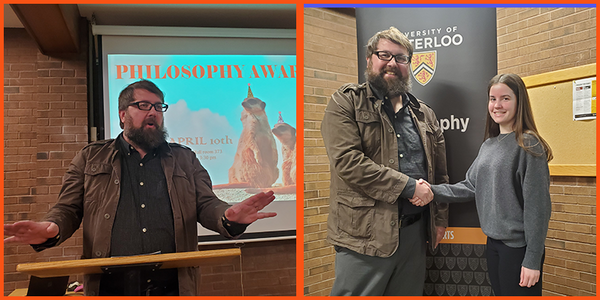
Second-year prize:
Simar Kapoor — presented by Brain Orend
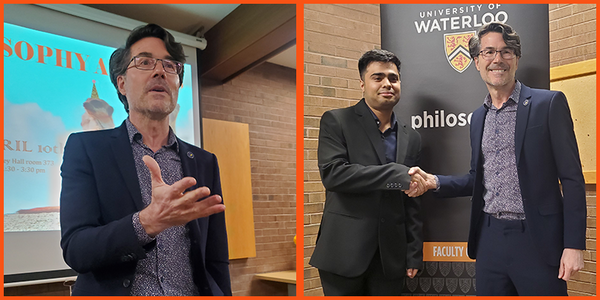
Third-year prize:
Alexander Swarney — presented by Katy Fulfer

Four-year prize:
Kota Kitagawa — presented by Jennifer Saul

Undergraduate Essay Prizes
Gold essay prize:
Presented to Jade Reijmers by Patricia Marino for her essay, Schelling’s Checkerboard Model: A Racist Dogwhistle

Silver essay prize:
Presented to Arul Kumar by Nick Ray for his essay on The Ethical Implications of Augmented Democracy.
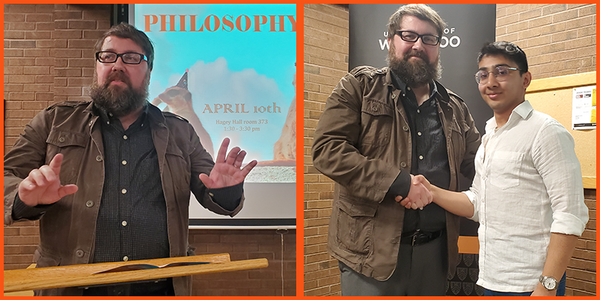
Bronze essay prize:
Presented to Ishita Ananth Krishnan by Patricia Marino for her essay, Accounting for Intersectionality in Feminist Rational Choice Theory – A Critical Analysis of England and Cudd.

Graduate essay prizes
Gold essay prize:
Presented to Belinda Alievska by Patricia Marino for her essay, Rethinking Linguistic Shifts in Pregnancy Loss.

Silver essay prize:
Presented to James Chow by Chris Lowry for his essay, Matter and Space: The Synthesis of Plato and Aristotle
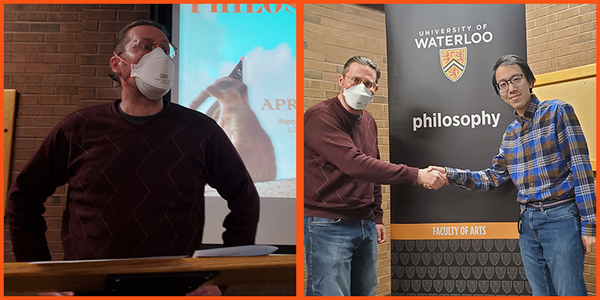
Bronze essay prize:
Presented to Kyle Adams by Patricia Marino for his essay, Trust, Reliance, and Artificial Intelligence.
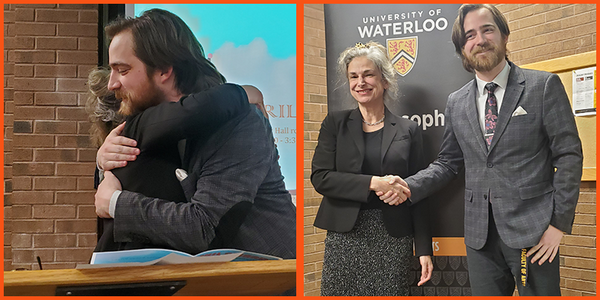
Special prizes
Philosophy department prize:
Presented to Katelyn Stermann by Nick Ray
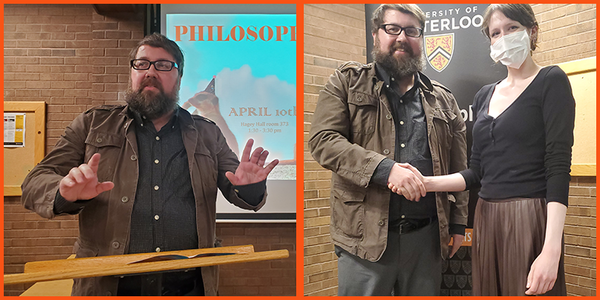
Lawrence Haworth prize:
Presented to Kota Kitagawa by Jennifer Saul

Kerr-Lawson Prize:
Presented to Jessica Oddan (not present at event) by Jennifer Saul
























